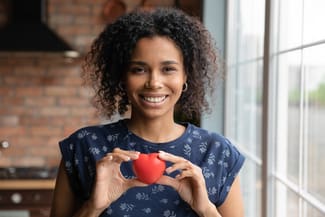Angry and scorching hot: I’ve never seen the world this engulfed in flames. We all know that opinions and behaviors will rub some folks the wrong way. But there’s no call for hostile reactions. Random acts or otherwise, what happened to kindness?
‘…generosity can actually be contagious. Receivers of a prosocial act can pay it forward. Kindness can actually spread.’
What happened to kindness? Is it just me or do you feel as though it’s fallen by the wayside as well?
Giving a much needed ride, being tolerant of differing opinions and behaviors, leaving an encouraging note, taking the time to listen to someone in distress: do you unconditionally reach out to others?
I mean, was there ever a time we needed it more?
What happened to kindness?
I bumped into a telling study conducted by Professor Amit Kumar of The University of Texas at Austin and Professor Nicholas Epley of the University of Chicago. Their work was published in the Journal of Experimental Psychology.
Kumar and Epley discovered something very interesting: those who give tend to focus on the object or service they provide. Receivers, on the other hand, latch onto the feelings of warmth the act of kindness generates.
Bottom-line: givers’ “miscalibrated expectations” often stand in the way of “kind behaviors” such as helping, sharing, or donating.
The study details
To learn more about these attitudes and behaviors, the team conducted two clever experiments – and then hit the lab. Let’s take a look…
Experiment #1
In the first experiment, 84 participants were recruited in Chicago’s Maggie Daley Park. A participant could choose to give a stranger a cup of hot chocolate from the food kiosk or keep it. Seventy-five decided to give it away.
With that, a member of the research team (performer) gave the hot chocolate to the stranger and told them it was at the direction of the participant.
Recipients reported their mood and the performer indicated how they thought the recipients felt about it.
Results
The performers underestimated the significance of giving the hot chocolate. They expected recipients’ mood to rate at an average of 2.7 on a scale of -5 (much more negative than normal) to 5 (much more positive than normal), while the recipients reported an average of 3.5.
According to Kumar…
People aren’t way off base. They get that being kind to people makes them feel good. What we don’t get is how good it really makes others feel.
Can you relate?
Experiment #2

“You have no idea how much that meant to me. Thank you.”
The researchers went on to conduct a similar experiment with 200 participants in the same park – with cupcakes.
What was particularly interesting about this experiment was 50 of the participants were told they could give their cupcake directly to strangers – no performer involved.
These recipients, perceiving the cupcake gift as an act of kindness, rated much happier than those who were given one by a performer.
Kumar…
Performers are not fully taking into account that their warm acts provide value from the act itself. The fact that you’re being nice to others adds a lot of value beyond whatever the thing is.
Do you think most folks get that?
To the lab
Finally, Kumar and Epley added a lab component to assess the consequences of kindness. Participants first either received a gift from the lab store or were given one by another participant. Then they played a game.
All participants who received a gift were told to divide $100 between themselves and an unknown recipient.
The researchers found that those who received their lab gift through another participant’s random act of kindness gave a lager portion of the $100 to the stranger. Indeed, they were more generous.
Again, Professor Kumar…
It turns out generosity can actually be contagious. Receivers of a prosocial act can pay it forward. Kindness can actually spread.
Well, how ‘bout that.
Let’s spread it around
What happened to kindness? Again, am I the only one who thinks it’s become scarce in these days of anger-stoked flames? And is it gone because we underestimate the impact of kindness?
The research underscores the immense value of kindness. Random acts or otherwise, it just makes people feel good. I choose to believe most of us know that (even if we don’t show it).
Let’s spread it around.
Couldn’t possibly include everything, so go ahead and check out the original article on UT News, Random Acts of Kindness Make a Bigger Splash Than Expected.
If you’re looking for more emotional and mental illness info and inspiration reading, peruse the titles on the articles page or by category below.

After a decades-long battle with panic, generalized anxiety, fluctuating moods, and alcohol dependence; Bill finally found his life’s passion and work – lending a hand to those in the same boat. At age 49 he hit grad school and earned his counseling credentials. And he continues his service through Chipur and other projects.











